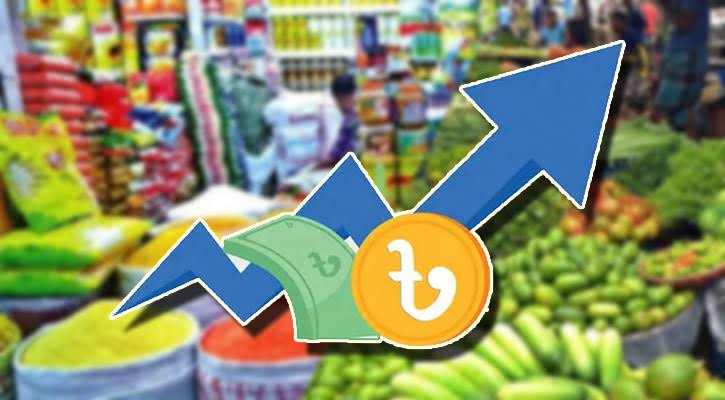Staff Correspondent
Published:2024-12-07 10:07:06 BdST
Food inflation soars to 13.80pc in November
Food inflation rate in the country rose by 1.14 percentage points to 13.80% in November 2024, nearing the 11-year highest rate of 14.10% recorded in July this year, according to data released by the Bangladesh Bureau of Statistics (BBS) on Thursday.
Food inflation stood at 12.66% in October, 10.40% in September, and 11.36% in August this year.
Meanwhile, general inflation rate increased by 0.51 percentage points to 11.38% this November, the highest rate in the past four months.
In October, general inflation was 10.87%, compared to 9.92% in September and 10.49% in August. It had previously peaked at 11.66% in July this year.
In November 2023, the general inflation rate stood at 9.49%.
However, the BBS data does not fully reflect the current state of the kitchen markets, where prices of essential commodities remain high.
Non-food inflation showed a slight increase to 9.39% in November 2024, up from 9.34% in October. Inflation in both rural and urban areas also rose last month.
In rural areas, point-to-point inflation reached 11.53% in November, up from 11.26% in October. Urban inflation climbed to 11.37% in November from 10.44% in October.
Food inflation in November was recorded at 14.63%, a notable increase from 12.53% in October. Non-food inflation rose to 9.31% in November from 9.06% in October.
The wage rate index saw a marginal increase in November 2024, reaching 8.10% from 8.07% in October.
Ghulam Rahman, former president of the Consumers Association of Bangladesh, said that the interim government is making efforts to control inflation, particularly food inflation. The Bangladesh Bank governor aims to reduce inflation to between 4% and 7% by June 2025, he noted.
However, he stressed the urgency of reducing production and import costs for essential goods.
"The government must closely monitor wholesale and kitchen markets to curb inflation effectively," said Rahman, a former Anti-Corruption Commission chairman.
He highlighted the financial struggles faced by low-income individuals and those relying on savings certificates or fixed bank deposits.
"The rising import and transport costs are driving inflation higher. The government must tackle extortion in the goods transport sector to bring inflation under control," he added.
Ghulam Rahman also emphasised the importance of creating employment opportunities to increase income levels and mitigate the effects of inflation. Essential commodity prices, including vegetables, onions, edible oil, rice, and other staples, have surged significantly in both wholesale and retail markets. House rents, furniture, household items, education materials, healthcare, and transport costs have also risen, contributing to the overall inflationary pressure.
Unauthorized use or reproduction of The Finance Today content for commercial purposes is strictly prohibited.


